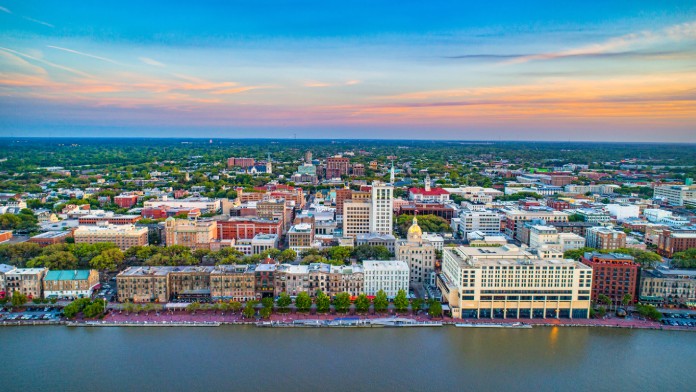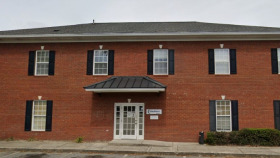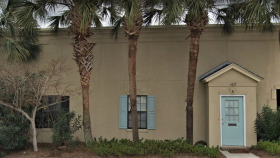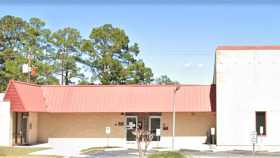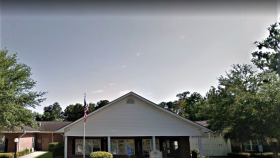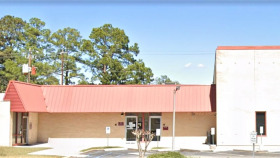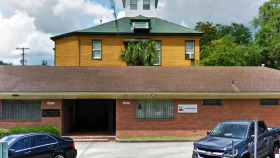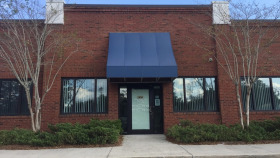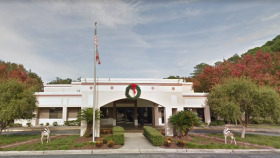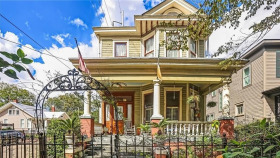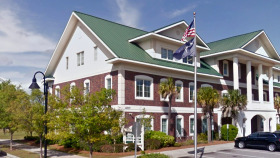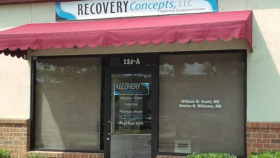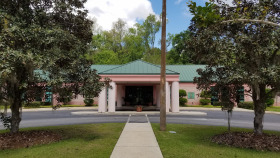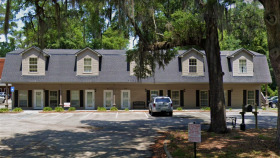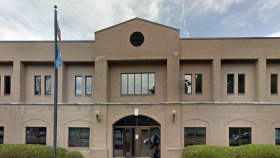Expert Insights
I read that addiction recovery advocates in Savannah, Georgia, are asking lawmakers to budget more funding for peer support programs, and I think it’s a great idea. Having witnessed the potential of peer support in friends’ and family’s lives, I know all too well how a peer support program can help someone turn their life around. What’s unique about peers is their lived experiences of addiction – they know how hard it is to overcome addiction, but they have successfully achieved recovery and are here to tell their stories. Not only should that be applauded, in my opinion, but I also think it is a critical element in helping people sustain recovery. Think about 12-step programs: they work because of peer support. What’s different about peer specialists, however, is that they are fully trained and registered with the state, offering more quality support and safety than someone you meet in a church basement. I truly hope that lawmakers in Georgia follow other states and provide this much-needed funding.
~ Nikki Seay
How Expensive is Drug Rehab in Savannah?
Drug rehab in Savannah, GA, varies in price, due to the following factors:
- Treatment setting – Outpatient treatment costs significantly less than inpatient drug rehab in Savannah, GA.
- Treatment location – Urban and desirable locations usually cost more than rural settings.
- Features and amenities – The more luxury amenities a program offers, the more expensive it is.
- Duration of program – The longer the program, the more it costs. Typical drug rehabs in Savannah, GA, last for 30, 60, or 90 days.
- Health insurance coverage – Health insurance can significantly reduce the cost of treatment.
In Georgia, the average cost of outpatient rehab is $1,710. The average cost of inpatient treatment is $55,475. For medication assisted treatment, Savannah residents can expect to pay around $126 per week for methadone, $155 per week for buprenorphine, and $1,177 per month for Naltrexone, based on national averages.8
How Do You Pay for Addiction Treatment in Savannah?
Private Insurance
Coverage varies by plan, but all insurance providers must cover substance abuse treatment to some extent, per federal law. Copays may still apply, and coverage varies by provider and individual plan.
Medicaid
The Georgia Medicaid program provides access to low-cost healthcare coverage for those in financial need. This coverage includes assistance for substance abuse treatment.
Medicare
Through Medicare, Savannah residents 65 or older or who have certain disabilities can qualify for federal health insurance. Most Medicare plans include coverage for drug rehab in Savannah, GA.
Sliding Scale Payment Options
Sliding scale options allow patients to pay only what they can afford based on their income. Proof of income is usually required to qualify.
TRICARE Insurance
TRICARE is a health insurance program for military personnel and their families. Coverage includes addiction treatment costs.
IHS-Funded Drug Rehabs
The Indian Health Service (IHS) provides low-cost or no-cost drug rehab in Savannah, GA, for American Indians and Alaska Natives.
Making Drug and Alcohol Rehab More Affordable
If drug rehab in Savannah, GA, seems unaffordable, consider the following opportunities to reduce the cost.
Choose a Program Offering Payment Plans
Rather than pay for the entire treatment program at once, find a facility that will allow you to make payments. This may involve paying a fee or interest, but it can make payment more feasible.
Apply for a Rehab Scholarship
You may be able to fund all or part of your treatment with a scholarship provided by a non-profit organization, corporation, or drug rehab in Savannah, GA. To learn about available scholarships, contact drug rehabs in Savannah, GA, directly.
Ask About Sliding Scale Payment Options
Always ask if this option is available. With this program, the facility charges an amount for treatment that is based on your income, so you can afford it.
Alcohol and Drug Laws in Savannah, GA
The following laws govern substance use and related issues in Savannah, GA.
Georgia 911 Medical Amnesty Law: This law shields people from prosecution for certain drug crimes when they call 911 during an overdose situation. The goal is to encourage those in need of medical attention to call for help without fear of legal repercussions.
Mental Health Parity and Addiction Equity Act of 2008: Under this law, health insurance providers cannot limit the benefits associated with mental health care and substance abuse. They are to be treated like any other medical condition.
Open Container Ordinance: In Savannah, outdoor drinking in public is permissible in certain areas of the city. Savannah allows open containers on Hutchinson Island and in most of the Historic District. However, the alcohol must be in plastic 16-ounce cups, and the limit is one cup per person.9
Marijuana Possession: Possession of marijuana in Georgia is illegal. However, as of 2018, the city of Savannah decriminalized possession of marijuana, allowing first-time offenders to pay a fine of up to $150 instead of serving jail time.10
How Does Savannah Compare in Alcohol and Drug Use?
Situated in Chatham County, Savannah, GA, is at the crossroads of two major interstates. I-16 connects the city to Atlanta, and I-95 stretches along the entire east coast. These interstates are pipelines for fatal drugs that make their way across the country and into the hands of Savannah residents. Fortunately, there are at least 12 drug rehabs in Savannah, GA, to provide much-needed treatment for this high-traffic area.
A few key statistics reveal recent trends in drug use and related issues in Savannah, Chatham County, and the state of Georgia.
- In 2020, there were 28 overdose deaths in Chatham County.1
- Between May 2020 and April 2021, fentanyl overdose deaths in Georgia increased by more than 100%.2
- During the 12-month period ending June 2022, there were 74 drug overdose deaths in Chatham County.3
- The 2020 opioid dispensing rate in Chatham County was 76.4 per 100 persons.4
- In 2019, there were 1,408 fatal drug overdoses in Georgia.5
- The rate of drug-related crime in Savannah is 2.38 per 1,000 residents.6
- The chances of being a victim of a drug-related crime in Savannah range from 1 in 218 to 1 in 604, depending on the neighborhood.6
- Overdose deaths in Chatham County increased by 20% from 2021 to 2022.7
Choosing the Right Level of Care in Savannah, GA
Detox: The first step of drug rehab in Savannah, GA, is detox. During this supervised process, your body is flushed of all toxins, so you can move on to treatment, free of physical dependence on substances.
Inpatient or residential: This is the most intensive type of treatment, involving 24/7 care while you live at a facility and participate in various forms of therapy.
Outpatient: Outpatient treatment is available in three different modes, which vary in their level of intensity.
- Standard outpatient treatment
- Intensive Outpatient programs (IOPs)
- Partial hospitalization programs (PHPs)
Telehealth and Online Addiction Treatment: This option is available for those who can’t attend treatment in person. Providers deliver treatment remotely through videoconferencing, apps, and other online tools.
Aftercare and Relapse Prevention: Once treatment is complete, aftercare, such as a 12-step program, provides ongoing support to help people maintain long-term recovery.
Resources
- Overdose deaths in Chatham County have already surpassed last year’s total. (2021, July 29). WSAV-TV.
- News, A. M. H. (2022, April 2). Fentanyl-related overdoses surge in Savannah, rest of state. The Current.
- Provisional County Drug Overdose Deaths. (2022, February 8). Www.cdc.gov.
- U.S. County Opioid Dispensing Rates, 2020. (2021, October 5). Drug Overdose | CDC Injury Center.
- State-by-State Laws. (n.d.). Drug Policy Alliance.
- Savannah, GA drug-related crime rates and maps. (n.d.). CrimeGrade.Org.
- Syed, C. (2022, August 26). Deaths from drug overdoses on the rise in Chatham County.
- National Institute on Drug Abuse. (2021). How much does opioid treatment cost? National Institute on Drug Abuse.
- Peebles, W. (n.d.). Yes, you can drink outside in Savannah, but only in certain areas. Where are the boundaries? Savannah Morning News.
- Georgia Marijuana Laws. (n.d.). Findlaw.

